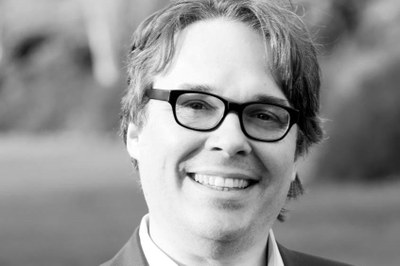Prof. Dr. Klaus Eisenack
Head of Resource Economics Group

Research Interests |
Contact |
|
|
Room: 1.07 resource-economics (at) hu-berlin.de |
Academic Career
| Since 2016 |
Full professor for Resource Economics (Humboldt-Universität zu Berlin) |
|
| 2014-2016 |
Associate professor for Economics, in particular environment |
|
| 2008-2014 | Assistant professor for Environment and Development Economics (Carl von Ossietzky University Oldenburg) | |
| 2006 |
PhD in Mathematics (Free University Berlin) |
|
| 2001-2008 | Scientist at Potsdam Institute for Climate Impact Research | |
| 2001 |
Diploma in Mathematics (Carl von Ossietzky University Oldenburg) |
|
| 1999 | Examination in Philosophy, Economics and Environmental Science
(Carl von Ossietzky University Oldenburg, University of Stirling) |
Selected Publications
Roggero, M., J. Fjornes and K. Eisenack (2025) Ambitious climate targets and emission reductions in cities: A configurational analysis, Climate Policy 25, 29-43.
Eisenack, K., G. Epstein, L. Finzel, E. Kellner, B. Nagel, S. Partelow, M. Roggero, S. Villamayor-Tomas (2025) Synthesizing archetypes of social-ecological systems: identifying common building blocks, Environmental Policy and Governance, DOI:10.1002/eet.70006.
Harmáčková, Z., K. Eisenack, Y. Yoshida, N. Sitas, L. M. Mannetti, and P. O’Farrell (2025) Value archetypes in future scenarios: The role of scenario co-designers. Ecology and Society 30 (3), 4.
Eisenack, K. (2024) Why local governments set climate targets: Effects of city size and political costs, Environmental and Resource Economics 87, 2935-2965.
von Dulong, A., A. Hagen, R. Mendelevitch and K. Eisenack (2023) Buy coal and gas? Interfuel carbon leakage on deposit markets with market power, Energy Economics, 106434.
Eisenack, K., and M. Roggero (2022) Many roads to Paris: Explaining urban climate action in 885 European cities, Global Environmental Change 72, 102439.
Eisenack, K., and M. Paschen (2022) Adapting long-lived investments under climate change uncertainty, Journal of Environmental Economics and Management 116, 102743.
Eisenack, K., C. Oberlack and D. Sietz (2021) Avenues of archetype analysis: Roots, achievements and next steps in sustainability research, Ecology and Society 26(2), 31.
Eisenack, K. and M. Mier (2019) Peak-load pricing with different types of dispatchability. Journal of Regulatory Economics 56, 105-124.
Hagen, A. and K. Eisenack (2019) Climate clubs vs. single coalitions: the ambition of international environmental agreements. Climate Change Economics 10(3), 1950011.
Eisenack, K., S. Villamayor-Tomas, G. Epstein, C. Kimmich, N. Magliocca, D. Manuel-Navarrete, C. Oberlack, M. Roggero and D. Sietz (2019) Design and quality criteria for archetype analysis. Ecology and Society 24(3), 6.
Meya, J. and K. Eisenack (2018) Effectiveness of gaming for communicating and teaching climate change, Climatic Change 149(3), 319-333.
Eisenack, K. and L. Kähler (2016) Adaptation to climate change can support unilateral emission reductions, Oxford Economic Papers 68 (1), 258-278.
Eisenack, K., S. Moser, E. Hoffmann, R. Klein, C. Oberlack, A. Pechan, M. Rotter, and C. Termeer (2014) Explaining and overcoming barriers to climate change adaptation, Nature Climate Change 4, 867–872.
Oberlack, C. und K. Eisenack (2014) Alleviating barriers to urban climate change adaptation through international cooperation, Global Environmental Change 24, 349-362.
Eisenack, K., O. Edenhofer and M. Kalkuhl (2012) Resource rents: the effects of energy taxes and quantity instruments for climate protection, Energy Policy 48, 159-166.
Complete CV including publication list (pdf)
Teaching (Selection)
- Adaptation to Climate Change
- Advanced Environmental and Resource Economics
- Environmental and Resource Economics
- Institutional Economics and Political Economy
- Quantitative and Qualitative Research Methods in Sustainability Science
- Regulatory and Competition Policy
- Study Projects
Other Activities
- Consultancy of public and private organizations on the European level and in Germany
- Development and facilitation of simulation games
